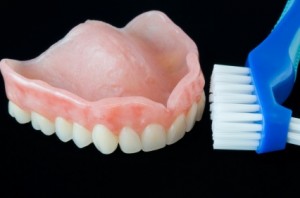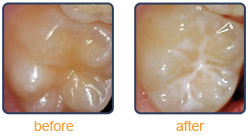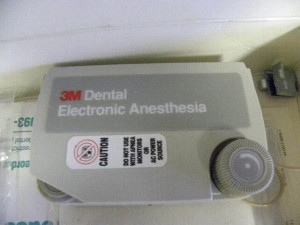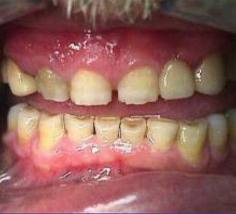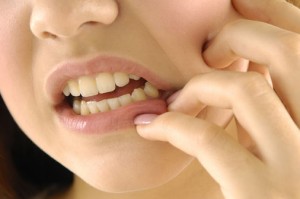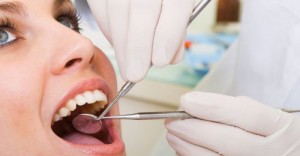Having dentures adds a new responsibility to your life. Like how your car requires maintenance throughout the years, your denture does so too. Proper care is needed to keep dentures fitting properly and comfortably, and it is your own responsibility to do so. Continue reading
Category Archives: Oral Care
Soft Night Guard Recommendations
A night guard, sometimes spelled “nightguard,” is a piece of hard or soft plastic or silicone molded (in some cases) to fit the shape of your teeth. Its purpose is to keep teeth from grinding into one another. A night guard is worn while sleeping and taken out in the morning. A night guard is also a popular treatment for TMJ, or temporomandibular joint disorder. Night guards are sometimes used in place of a nightly retainer, because a night guard also serves to keep the teeth in place as well as prevent grinding and clenching. Night guards are a well-known treatment for bruxism, otherwise known as tooth grinding and jaw clenching. Continue reading
How to Use Dental Sealants to Prevent Cavities
Pits and fissures found on our teeth are obvious stagnation areas where dental plaque can form and mature, which will then lead to dental cavities forming at the entrance to the fissures on teeth. The tooth is most susceptible to plaque stagnation when it first erupts into the mouth because at this time the chewing surface is below the normal line compared to the other teeth and can be easily missed during tooth brushing. Therefore susceptible fissures where good oral hygiene is not established should be protected with a dental tooth sealant. Continue reading
Scare of Needles? Worry No More. There’s Electronic Dental Anesthesia!
In 1883, Erb wrote that “At the present time we possess in the electrical current one of the most certain and brilliant remedies for neuralgia, although we must admit that we have not made much progress in our knowledge concerning its mode of action in these forms of disease”
Continue reading
Bulimia and teeth
What is Bulimia Nervosa?
Bulimia, also called bulimia nervosa, is an eating disorder that involves binging and purging. Binge-eating is when a person eats an abnormally huge amount of food in a short period of time. The food is usually consumed not in response to hunger, but to depression, stress or self-esteem issues. In fact, a person may experience loss of control and continue binging even on a full stomach. This is then followed by purging, which are efforts to lose weight such as self-induced vomiting, long hours of excessive exercise, taking laxatives and diuretics. The most common method is self-induced vomiting, which is done by sticking a finger down the throat following an episode of over-eating so that food is vomited out before it is absorbed by the body.
What are the signs of a bulimic person?
It is hard to identify a bulimic person because unlike people with aneroxia, bulimics appear normal, and can even be overweight. Furthermore, they tend to perform their acts of binging and purging behind closed doors, like hiding food in their drawers, or going into the kitchen after everyone has slept.
Continue reading
Habits that are harmful to teeth
1. Bruxism/clenching
Bruxism can be defined as the habitual grinding of teeth when a person is not swallowing or chewing, whether consciously or subconsciously. It usually occurs during sleep at night and is not detected by the person himself, but by the person sleeping next to the person. It is believed to be invoked by stress. Teeth clenching is more common during the day, and is associated with nervousness, stress, or a heightened state of emotion. These habits apply a heavy load onto the teeth over a long period of time causing the teeth to slowly wear down, decrease in height (attrition), and eventually exposing the dentine. Also, these habits have a heavy toll on the temporomandibular joint (TMJ), or the jaw joint, leading to temporomandibular disorders or pain.
How to Ease a Toothache Until Your Dentist Appointment
Having severe pain from a toothache but no dentist in sight? Dental pains will not simply go away if you bear with it so try to make a dental appointment as soon as possible to alleviate the cause of the pain. However, what are you to do to ease a toothache for the meantime? Continue reading
Difference Between Periodontist & Endodontist
There are many fields of specialties in dentistry including periodontology and endodontology. Not many can tell a periodontist and an endodontist or other specialists apart as they are not exposed to these specialists. This article will help you tell the difference between a periodontist and an endodontist. Continue reading
Dental care for the elderly
 Gerodontology is a branch of dentistry that deals with the diagnosis, prevention and treatment of oral diseases. There are few problems which may affect the oral health status of the elderly: Continue reading
Gerodontology is a branch of dentistry that deals with the diagnosis, prevention and treatment of oral diseases. There are few problems which may affect the oral health status of the elderly: Continue reading
Complications of Injections (Part 2)
EDEMA
Causes:
Trauma during injection
Injection of irritating solution
Infection, hemorrhage
Allergy (Angioedema)
Problems:
Pain & dysfunction
Airway obstruction
